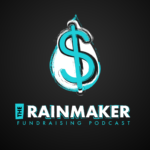
Culture has to be experienced. It can’t just be talked about.
Most nonprofit organizations can’t compete for talent with their for-profit peers from a compensation standpoint. But they can absolutely compete and WIN if they focus on culture and lean into building a THRIVING culture.
Culture is your organization’s competitive edge, and for leaders, culture should be the #1 priority every day.
Major Nesan Kistan was born in apartheid-era South Africa, grew up in Australia, and has served in various leadership roles with The Salvation Army over the last few decades. As my guest today, Major Kistan helps us understand what it means to build a thriving culture in our organizations, and what it takes to lead well.
Here are some of the key insights and learnings that Major Kistan shared in our conversation:
- Culture can’t be delegated. If you want to build a successful and thriving organizational culture, you as the CEO or senior leader must own the outcomes.
- If you as a leader focus on culture and invest heavily into developing a healthy culture, you will reap the benefit in increased staff retention and a greater capacity to create meaningful impact.
- If you don’t pay attention to culture, you run the risk of losing great people and bleeding revenue through excessive turnover.
- A healthy culture is one where people have permission to learn, test, and fail, without fear of reprisal if they aren’t immediately successful. Healthy cultures also cultivate continuous learning, show their people that they are valued, cared about, and loved because of who they are, not just because of what they contribute.
- As a leader, if you want to improve morale in your organization, you have to step into the gap and do the hard work yourself. You can’t just delegate the difficult decisions.
- Your hiring strategy is critical to your organizational health and success. If you hire hard, you can manage easy. You’ve got to really challenge candidates in the hiring process to ensure that there is alignment between you and them, and that there’s clarity across the board about the value that each of you bring to the relationship.
- As demographics in the workforce evolve and change, you need to focus more on your cause to motivate employee engagement and retention.
- Organizations that used to fall back on their brand will struggle if they aren’t motivating their people to focus on mission and cause, especially because younger people have a deep desire to align with something bigger than an organization or brand. In fact, many people today are brand skeptics, which could negatively impact both your hiring and retention strategies.
- As a leader your communication has to be intentional and consistent. Just because you said it once doesn’t mean it stuck. Get used to repeating your key messages regularly, because you need to do that to ensure you’re motivating your people toward the shared objective.
- What COVID taught us is that the most successful leaders are those who are adaptable. Change is inevitable, and it happens at a faster rate today than ever before. The leader that can’t keep pace with change and navigate it well will likely fail fast.
- The best leaders understand that position and title matter much less than influence and soft power. If you want to make the biggest impact possible, pay attention to how your influence can change hearts and minds. Force rarely works as well as finesse.
- If you want to achieve success as a leader, you need to focus 50% of your time and effort on developing yourself. If you don’t focus on leading yourself well and caring for yourself, you won’t be able to show up effectively for your people every day.
- You can’t prepare for a crisis the day it arrives on your doorstep. Great leaders build the capacity into their organizations to deal with crisis before it happens, so that when something bad happens, the entire organization understands how to respond and has a plan to navigate the crisis effectively.
- As a leader, your greatest currency, both inside your organization and with supporters outside, is trust. Your willingness to be vulnerable and authentic will accelerate trust where it matters most.
If you want to raise more money online, develop better relationships with your constituents, and give every one of your website visitors a better experience, you need to check out Funraise.
Right now you can also download their FREE Annual Report Manual which walks you through exactly how to create a compelling annual report that donors will actually want to read!

